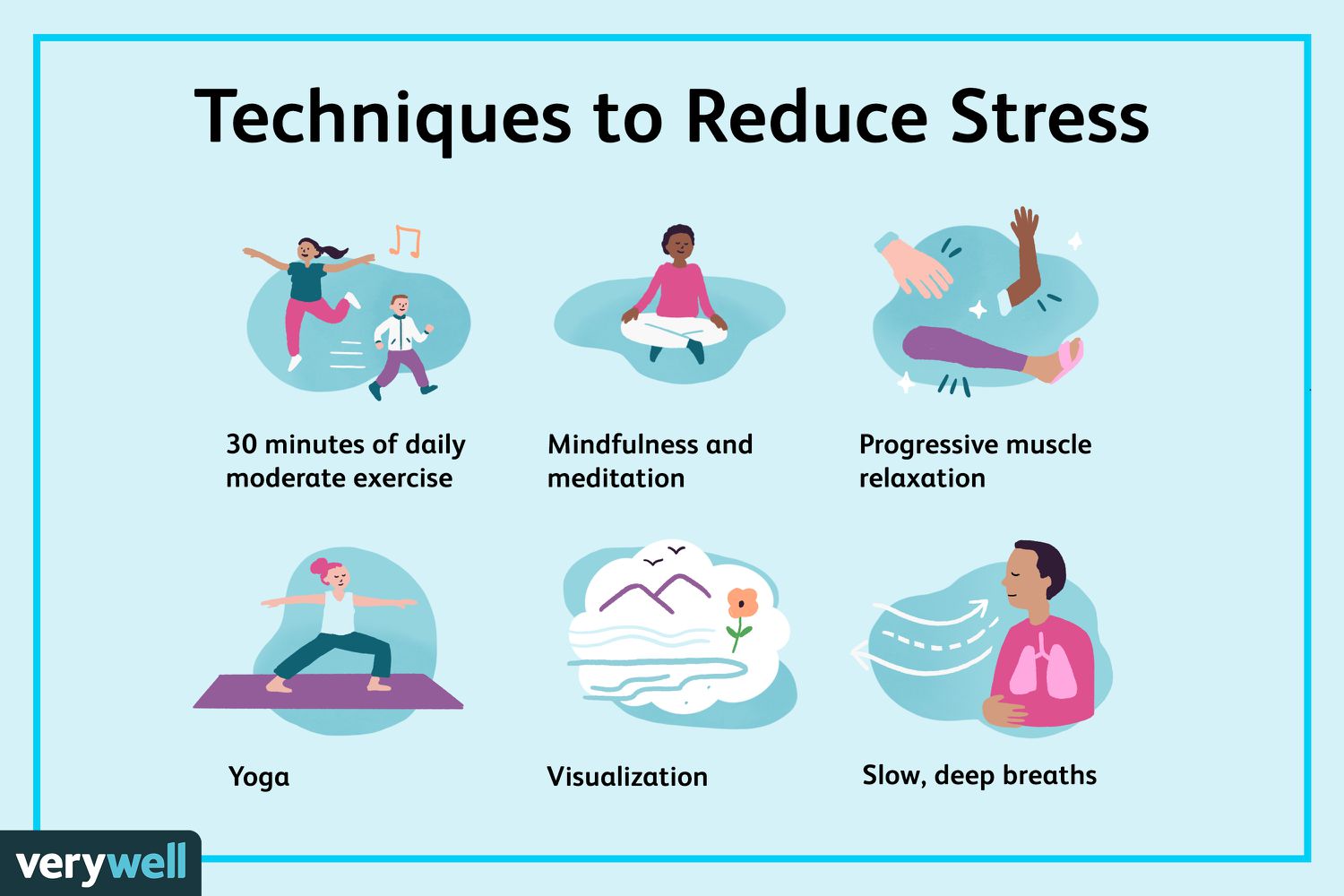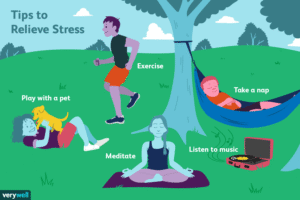Long-term stress can cause serious health complications. While short-term anxiety may help boost our defenses against sudden threats, prolonged anxiety can have serious long-term ramifications on health and wellbeing.
To maintain mental wellness, learn effective techniques for handling stress. These tips will enable you to stay calm and energetic throughout the day even under challenging circumstances.
1. Get Enough Sleep
Your body responds better to stress if you get sufficient rest each night, so ensure you go to sleep at a reasonable time and are getting between seven and eight hours of shuteye each night.
Learn to recognize your stress warning signs – physical symptoms like tight muscles, fatigue or headaches and emotional indicators such as forgetfulness or irritability – and take proactive measures to manage them. This may involve taking some time out for relaxation activities such as doing breathing exercises, exercising or talking to a trusted friend or family member about what may be bothering you.
All people experience stress from time to time, but chronic anxiety can significantly undermine mental health. Learning how to effectively manage daily stressors is one of the best ways to safeguard mental wellbeing. Experiment with different relaxing techniques until you find something that works for you; laughter, spending time outdoors, music therapy massage and deep breathing may all be effective at relieving tension. If these methods fail, talk with your healthcare provider as there may be other solutions such as counseling or therapy available that might provide relief.
2. Exercise Regularly
Regular exercise may help alleviate stress. From lifting weights, dancing to your favorite tunes or simply taking a walk around the block, exercise releases feel-good hormones such as serotonin and endorphins that can elevate mood while making you more resilient to stress.
Physical activity is an excellent way to release pent-up energy and improve sleep patterns. Aim for at least 150 minutes of moderate-intensity activity each week, including two muscle strengthening activities.
Physical touch can also be an excellent way to relieve stress. From petting your pet or cuddling with loved ones, to hugging friends or hugging yourself, physical contact releases the feel-good hormone oxytocin which has the ability to lower stress levels.
Other healthy lifestyle changes can help decrease stress levels, including eating a well-balanced diet that omits foods high in sugar and fat, while restricting caffeine to no more than 400 mg a day (caffeine can hinder sleep, further increasing stress). Finally, limit caffeine to no more than 400 mg daily because this substance interferes with achieving restful nights sleep that will only heighten anxiety levels further.
3. Eat a Healthy Diet
Food plays a big part in how we feel and perform, so eating a balanced diet that includes plenty of fruits and vegetables can help ensure that we remain healthy and achieve peak performance.
Stress is an inevitability in life, but you can take steps to alleviate its effects. Make note of what stressors trigger it in your life such as finances, relationships and work issues and make an effort to change or reduce these areas as possible.
Make time for physical activity – it will improve sleep, relieve anxiety and release endorphins that promote positivity. Be sure to find an activity you enjoy so you are motivated to keep at it regularly!
Meditation, deep breathing exercises or prayer can all help to relax the mind, while alcohol and drugs may add further stress. All of these steps will help improve mental health and help you better handle everyday challenges – for more ideas watch our free program of 6 videos.
4. Stay Connected with Others
Your mental health consists of four elements: thoughts, emotions, behaviors and body reactions. Each can have an effect on one another: thoughts can impact how you feel; emotions dictate our responses to life events around us; behaviors determine what kind of actions we take based on these reactions; body reactions reflect these actions taken against ourselves by society at large.
Reducing stress levels is one way to improve mental health, and cultivating and nurturing supportive relationships with family and friends is another. Studies show that those who feel connected tend to have greater levels of resilience. A sense of community can be found at work, in religious organizations or activities such as organized sports teams – all these connections help individuals feel supported and valued, ultimately improving both emotional and physical well-being.
Brian speaks with Don Parker, president of behavioral healthcare transformation services at Hackensack Meridian Health, about strategies to expand access to high-quality behavioral healthcare services. They discuss programs geared toward teaching children about mental illness at an appropriate age as well as innovative therapies and staff wellness initiatives.
5. Take Care of Yourself
Caring for yourself may feel like another chore on your to-do list, but it’s an integral component of maintaining good mental health. This may involve adhering to a regular sleep schedule, eating healthily and engaging in regular physical activity – including finding ways to recharge like breathing exercises, meditation practices, prayer services or listening to soothing music.
Avoid drugs or alcohol that may increase stress. A daily schedule and calendar is helpful in creating an atmosphere free of anxiety – this may include noting classes and test dates as well as setting aside time for studying or participating in other enjoyable activities.
As soon as you feel stressed, it’s essential that you create a support network and seek emotional assistance from others – family or friends may be willing to listen if that helps, while reaching out to an existing support network can also be helpful. If therapy or counseling prove to be too much support for you alone, consider reaching out at NYC Health + Hospitals or through private practitioners for additional support.




